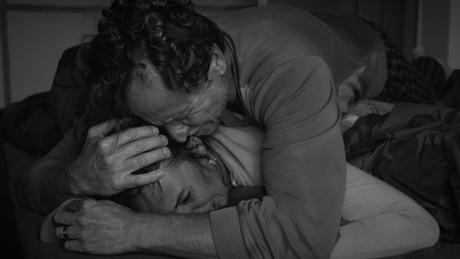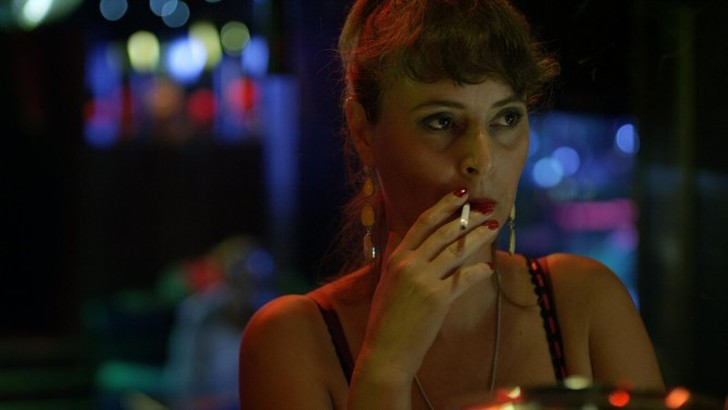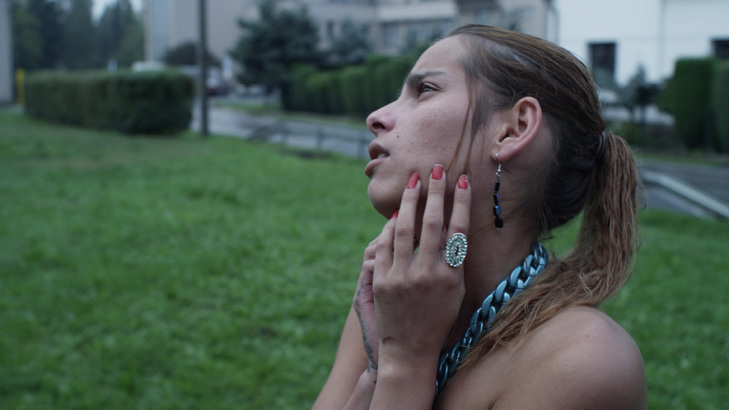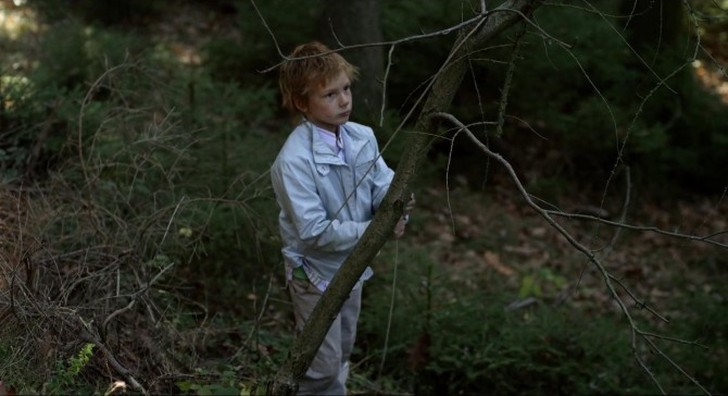 A nihilistic portrait of a modern times in a small town in the Czech Republic, Petr Vaclav's We Are Never Alone is a story of quiet desperation, sadness, and the inevitable rage which festers in such sorrow, detailing the intersecting lives of a set of hopeless characters, each of which unfortuantely warrants little empathy from the audience. A narrative designed to present a social cross-section of contemporary life in the Czech Republic, We are Never Alone exhibits a stark, unrelenting portrait in which none of these characters even have a glimpse of hope or happiness in their lives, making them hard to empathize with due to the film's over stacked deck of misery and despair. The film lacks any real moments of levity throughout its misery-soaked narrative, with only the smallest glimpses of pitch-black humor offering the audience a break from the unbearable dispair of these characters. The driving force behind the narrative is centered around the relationship which forms between a paranoid prison guard and his neighbor, an unemployed hypochondriac who is completely supported and cared for by his wife. These two men drive the narrative down its death spiral of despair, with their quiet desperation and angst-driven antics leading to pain and misery for nearly everyone around them, including their own families. The tranference of emotion - pain, misery, despair; is felt throughout We Are Never Alone, with perhaps the film's best attribute being its ability to encapture the shared experience that is life, exhibiting how we are all connected to each other in one way or another, while the film darkly and painfully presents the general and inherent selfishness of humanity. Much of this tranference ideal is created through the film's documentation of the Hypochondriac's two young sons, each of which suffer cruel fates in this narrative due in large part to indirect sin's of their father, with each young man in a place of solitude, having no true fundamental understanding of morality, empathy, or how actions have far reaching consequences, all ideas which one should develop through guidance, love, and affection. We Are Never Alone dabbles in a lot of socio-political commentary but it never congeals, with the film at times feeling far too complacent in its desire to wallow in the despair of its characters. The intersecting lives of these characters touch on various socio-political aspects of society, from the uniformaly poor treatment of woman to multiculturalism and the simmering racial tensions which tend to go with it, yet these ideas never fully come to fruition, feeling much more like disjointed vignettes thats only cohesive quality is a shared atmosphere of hopelessness, pain, and alienation. Haphazardly shifting the aesthetic back-and-forth between black-and-white cinematography and color cinematography is a puzzling decision by Petr Vaclav thats purpose eludes me, yet the film's composition is well-thought out and designed, featuring claustrophobic photography that perfectly aligns with the film's overall tone, one of alienation, misery, and despondency. A misery-soaked tale which offers very few moments of levity, Petr Vaclav's We Are Never Alone is a dark and depressing film about pain and misery, being a film that unfortunately never ahcieves the emotional effect it is seeking due to the film's one-note, brooding atmosphere of despair.
0 Comments
Leave a Reply. |
AuthorLove of all things cinema brought me here. Archives
June 2023
|



 RSS Feed
RSS Feed
